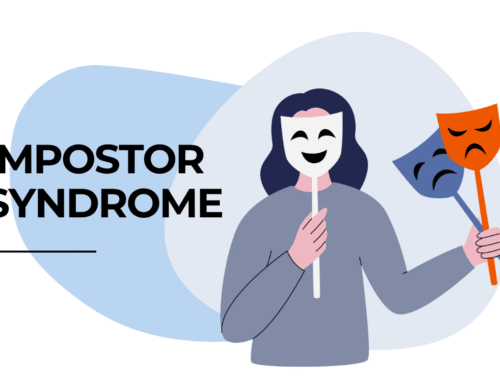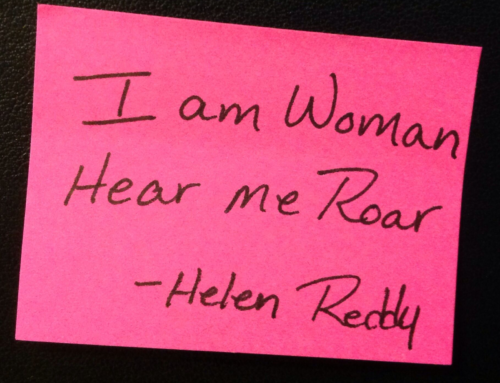
Is it just me or does anyone else struggle to be heard? In my curriculum, UPROOT, I teach about the reactive tendencies that lay below the surface in the roots of our lives. My predominant tendencies are passivity and the need to please.
From a very young age I learned that it was wise to be quiet, be a good girl, and sometimes just stay the hell out of the way of my family. It was the strategy that I learned to keep myself supposedly safe. I am and was a very sensitive soul. I used to say my dad could just look at me, and I would cry. It felt awful to feel like I did something wrong, and if someone was upset with me, that was the worst.
Years of conditioning as a child turned out to be behavior that manifested itself into my adult life. My passivity and need to please culminate in relationships and situations that either became toxic or detrimental to me and my wellbeing. Time after time I would enter relationships and give and give until I was worn out. I was taken advantage of and allowed myself to be manipulated, all the while believing that being nice was a good thing.
A Fine Line Between “Nice” and “Too Nice”
When working with Cathy Hawk of Clarity International, I asked her what this pattern was about for me. She said, “you’re too nice.” Of course, I was shocked and questioned her about the comment. She explained that it is not the “being nice” that is the issue, it is the “acting nice” aspect that gets me in trouble.
Acting nice is below the line in Clarity speak. Bottom line, it is a very low energy frequency along the lines of martyrdom. See, my “acting nice” is rooted in my young beliefs that I have to be nice to survive, to be loved, to be accepted.
This conversation was a game changer for me, and it started me on a new growth path. For years, I thought of myself as a strong, capable and confident woman. Yet, when I got triggered, upset, or felt taken advantage of, I would “speak my truth” and it turned out that what I thought was assertive became perceived as aggressive. As a matter of fact, sometimes I was called a bitch.
Culturally, it is common for strong women who speak their minds to be called a bitch. As part of our patriarchal culture, women, like children, learn to be seen, not heard. This has changed some over the years, yet I still feel it is pervasive. I love the acronym of BITCH – Being In Total Control of Herself. Yet, even today when I speak up on a controversial issue, or have to hold a boundary, I struggle with feeling bad.
What I know is that when we respond under duress or triggered emotion, most of us go to a conditioned response, most likely a young unresolved emotional response within us. When we react from such a place our energetic frequency is very low.
Respond vs React
As I have raised my awareness and done a shit ton of work on my earlier belief system of having to be nice, I have been working on my communication skills. Today, I am learning to respond versus react. Which means I allow myself to become aware and feel the discomfort I feel regarding having a difficult conversation.
Brene’ Brown teaches, “Be clear. Be kind. It’s uncomfortable and it’s not always easy. Integrity is choosing courage over comfort; it’s choosing what’s right over what’s fun, fast or easy; and it’s practicing your values, not just professing them.”
I have this posted on my bulletin board over my computer. It reminds me that the power to communicate clearly is not always easy, especially if you think you are supposed to make everyone happy.
Mark Waldman and Andrew Newberg, MD “Words can change your brain, and the right words, spoken in the right way, change the listener’s brain. But the wrong word can damage your friendships, distance your family, endanger your job, or even bring a country to its knees.”
So words are important, but what is most important is the energy that you speak those words. It is also the energy and intention in which we communicate those words.
Integrity is Courageous Communication
Integrity is key to healthy relationships and communication but so is courage. In my leadership work and my UPROOT curriculum we talk a lot about Integrity – meaning I know my values and I live them in a way that others know what is true for me. Courage or courageous communication is speaking up even when it is uncomfortable. My best self knows when I have been clear in my communication and aligned with my highest self – it feels right even if it is uncomfortable.
Here are some things to do when dealing with uncomfortable conversations:
- If you feel triggered, do not communicate in that moment. Take a breath, move away, go to the bathroom.
- Allow yourself to be present to your feelings in that moment. Why are you upset? What do you need to do to settle yourself?
- Ask yourself what options do you have? Do you have to communicate with the person in the moment? Can it wait? A good night’s sleep is always helpful.
- Be clear about what you want to communicate without dancing around it.
I love the Open The Front Door method:
O – Observation: What happened? What did you see / witness? What are the facts?
T – Thoughts: What do you think about the situation?
F – Feelings: How do you feel about what happened?
D – Do: What do you want done or need to do in the future? Do you have a request to make?
As we traverse this time in our lives and learn to be more accepting and open to thoughts and beliefs of others, we are not always going to agree. Learning to communicate clearly and having the courage to do so can change the trajectory of our lives. At least, it is starting to do so for me.
My very best,
Christy
To learn more about Christy’s UPROOT curriculum and the reactive tendencies that lay below the surface in your life, contact christy@christybelz.com.




